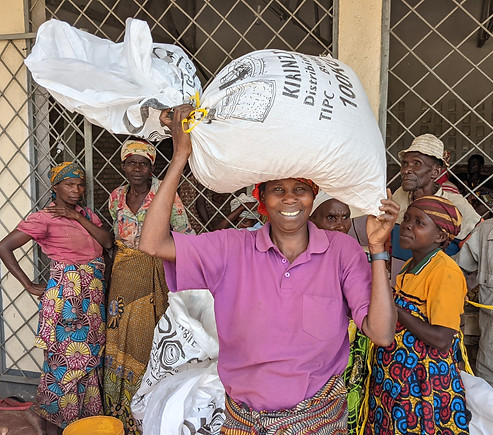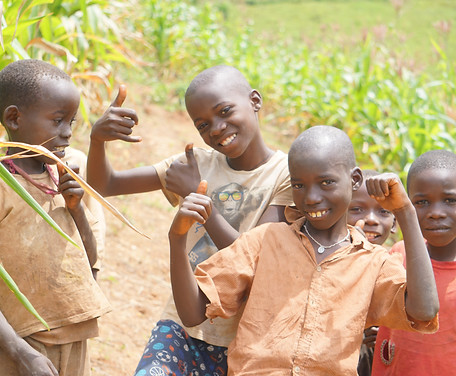
What we do?
Transforming one community at a time
OUR APPROACH
ICJ targets vulnerable communities that are almost left behind. We bring them the Gospel of Christ and provide them with community discipleship in collaboration with the local churches. As our target populations are destitute, we support them in a process of empowerment and self-management through the promotion of local activities such as agriculture and livestock, the improvement of living conditions (housing, health) as well as the schooling of children in order to get these communities out of the vicious circle of poverty. We also intervene in high schools and universities to promote discipleship and leadership based on biblical principles.
We primarily work with widows, orphans, batwa, church leaders, pupils and students.

OUR ACTIVITIES





VOCATIONAL TRAINING
BUILDING
HOMES
COMMUNAL
LAND
SCHOOL
FEES/SUPPLIES




CHILD SPONSORSHIP


HEALTH
SUPPORT
AGRICULTURAL
TRAINING
LIVESTOCK
INITIATIVES
BIBLE
DISTRIBUTION
DISCIPLESHIP
TRAINING
COMMUNITY
DEVELOPMENT
Discipleship
Discipleship and connecting people with Jesus is the heartbeat of all we do. Discipleship is a huge need in Burundi, even for those who already have a faith. There is often a lack of understanding of what it means to know and follow God. Here are some of the programs we do:
1. J-Life Africa (Jesus Life) - Through the J-Life Disciple Making Movement, we run training for church leaders all across the country in four modules - Strategy, Foundation, Vision and Multiplication.
2. Bible League Phillip Project - We distribute ten of thousands of bibles across schools and churches, as well as run weekly devotional groups in this locations using disciple making materials.
3. Our Communities - We run various discipleship courses for our two communities, get them into small groups. We also work with the local churches around our communities to increase their disciple making capacities.

Farming

One of the biggest challenges in our rural communities is getting enough food to eat for at least one meal a day - often leading to malnutrition. Our aim through teaching more productive agricultural techniques and communities working together as farming cooperatives, is to provide each family with enough food to eat for a whole year, twice a day. With even enough left over to sell! We do the following:
1. Foundations for Farming - We teach our communities more productive conservation agricultural techniques that are founded on biblical principles. Compared to traditional farming techniques, these new methods have produced three times more yield in Burundi than the national average!
2. Livestock initiatives - We provide and train our communities to look after goats, chickens and cows. These all provide manure to help fertilise the crops, as well as breed to provide alternative income.
3. Securing Land - Before joining ICJ, most of our community members did not have access to land to grow their own crops. Through providing communal land, as well as an ambition to get land for each family - securing more land is fundamental in being able to increase food provision.
education
Education and changing mindsets is key to breaking the cycles of poverty. We work with adults and children and do the following:
1. Vocational Training - We teach sewing, soap making, milling and farming. These provide useful skills in the local rural communities to make a living.
2. Microenterprise - We encourage small business start ups, firstly by giving skills, then providing training and setting up microfinance loans and savings groups.
3. Health & Hygiene - We provide basic teaching in literacy, as well as health and hygiene. We also help access to healthcare through government health insurance cards, providing sanitary pads to girls, and supporting crisis cases.
4. Schooling - We aim to keep every child in our program in school and give them the best educational opportunities possible. This involves helping with school fees, providing school supplies like books, uniforms, bags, and even food so they don't miss school due to hunger!




Housing
Housing Need - Many families in our communities are forced to build their houses on other peoples land, and then work hard labour for free to keep them there. In addition to this, the shelters are made from the most basic mud, leaves and branches. This barely keeps the rain out and can easily wash away in a storm, while the whole family sleep together on a grass mat on a mud floor. It is also impossible to maintain a good level of hygiene in these living conditions - so family members frequently get sick.
Housing Model - ICJ have developed a low cost housing solution, adopting local building materials and techniques. For approximately £1200 ($1500), we buy a small plot of land, construct a four room house (a bedroom for the parents, boys & girls), a toilet and a detached kitchen.
A new home drastically improves a families safety, wellbeing, health and security - allowing them to thrive in their communities with dignity.
Training - The beneficiary also helps with the house construction, learning valuable construction skills like brick making. If possible, we also try to purchase extra land so that the owner can grow crops by the house, which also demonstrates improved farming techniques to the surrounding community.
child sponsorship
Investing in the next generation is key to break the same cycles of poverty that their parents have experienced. We have teamed up with World Help to offer child sponsorship. As a sponsor, you will be able to write to your supported child and send words of encouragement, as well as get updates on how they are doing.
We work with the children and their family in a holistic way, so not only is the child benefiting from the program, but we are raising up the whole community.
We have 60 children in the program with many still needing sponsors. Do get in touch if you would like to support a child in this way







